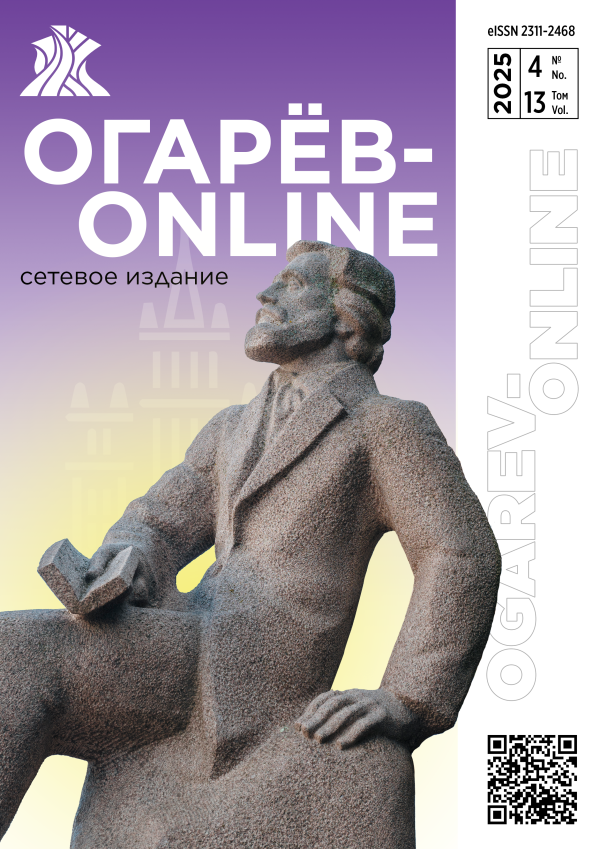Vol 5, No 4 (2017)
- Year: 2017
- Published: 01.04.2017
- Articles: 10
- URL: https://ogarev-online.ru/2311-2468/issue/view/18732
Full Issue
Communicative tactics of creating the media image of Siberia in local radio text
Abstract
The article considers the media image of Siberia on the local radio. The study is based on the programme "The Legends of Siberia" on the radio station "Radio Siberia". The author studies the communicative tactics and the communicative turns used to create the media image of Siberia and analyzes the language units used in the communicative tactics in question.




On linguistic status of the category of gradualness and related categories in the modern Russian language
Abstract
The article considers the semantic categories involved in the quantitative- qualitative relations in the modern Russian language. The authors study the semantic category of gradualness as a way of realization of quantitative and qualitative relationships in the language.






Peculiar features of closing book of poems (based on the book «The recent time. Verses. Poems. Ballads» by D. Bykov
Abstract
The article considers the genre characteristics of the closing book of poems. The study is based on the collection of poems «The Recent Time. Verses. Poems. Ballads» (2007) by D. Bykov. Having analyzed the book, the author draws a conclusion about the metagenre nature of the book structure, which storyline consists of the reflections on the modern life and the role of poet in it.


Syntactic means of joy realization: a comparative study of Russian and Serbian languages
Abstract
The article considers the basic syntactic means used to convey the emotion of joy in the prose of Russian and Serbian authors. The authors apply the comparative method to study the factors contributing to the use of expressive syntax to describe the emotional state of joy by the authors in question.






Non-proper direct speech as a technique of syntactic stylistics
Abstract
The article presents the results of an analysis of linguistic works on stylistic syntax of the Russian language. The objectives and subject of stylistic syntax are defined. The study focuses on the role of stylistic means of syntax, particularly, the ways of rendering non-author speech, consisting of constructions with direct, indirect and non-proper direct speech.
















